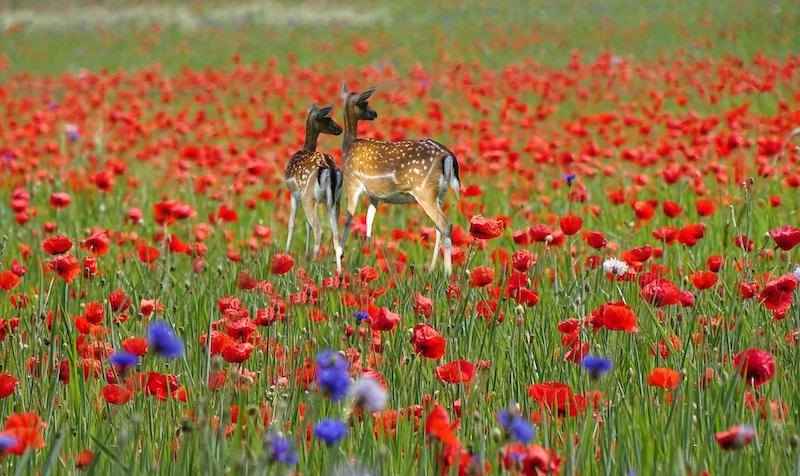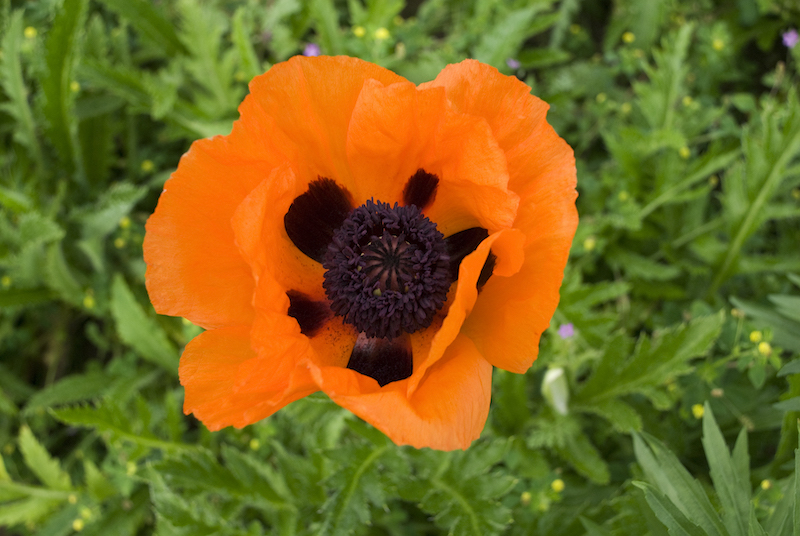Poppies are one of the easiest flowers to grow in the garden. They are almost self-sufficient and provide seeds for many future plants. A special bonus is that deer rarely, if ever, browse these plants. The annual and the perennial types are equally safe from deer. Poppies produce alkaloids that are toxic to deer, so they are less likely to eat any part of a Poppy plant.

According to Rutgers University, this plant is Seldom Rarely Damaged on their rating scale from Rarely Damaged to Frequently Severely Damaged. This means that deer may try the plant once or twice, but will rarely eat enough to kill the plant or make much of an impact on the look of the garden.
| Rarely Damaged |
| Seldom Severely Damaged |
| Occasionally Severely Damaged |
| Frequently Severely Damaged |
Keeping Deer Away From Poppies
Since deer rarely damage Poppies, the best way to protect them is to plant them without restriction. Planting large areas of Poppies will not only look spectacular, but it may keep deer away from tastier plants. Using annual Poppies to edge a garden area or dot some raised beds may be enough of a deterrent to keep deer moving along without browsing.
Will Poppies Come Back After Deer Eat Them?
Poppies will recover from the occasional browsing. If deer eat the flowers, the plant will most likely send up more flower stems, as in deadheading. Deer damage may prevent annual Poppies from re-growing in the current season, but most likely they will return next year from self-seeding.

Sources: Rutgers New Jersey Agricultural Experiment Station ‘Landscape Plants Rated by Deer Resistance’ 2018
 |
Author Robbin Small - Published 7-26-2022 |


